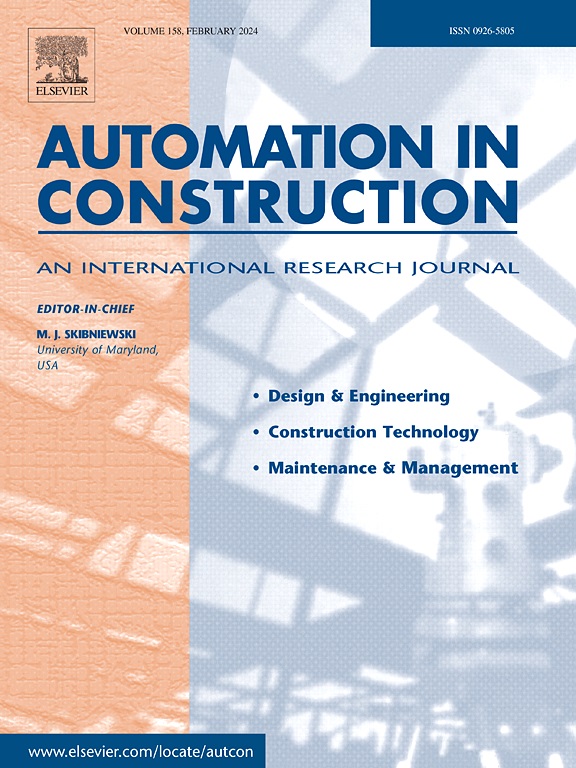Investigating construction workers' perception of risk, likelihood, and severity using electroencephalogram and machine learning
IF 9.6
1区 工程技术
Q1 CONSTRUCTION & BUILDING TECHNOLOGY
引用次数: 0
Abstract
Understanding how workers perceive risk is essential to construction safety management. Firstly, an event-related potential (ERP) experiment was conducted to investigate the relationship between risk, likelihood, and severity. Then, a linear model was developed to predict workers' risk perception based on ERP components and quantify the relative importance of severity to likelihood. Finally, an additive model was constructed to reflect the risk perception pattern. The results indicate: (1) Workers' emotional responses stem from the process of associating accident consequences in severity assessment, which is represented by the late positive potential (LPP) component. (2) Workers' risk perception relies more on severity compared with likelihood. (3) The additive model (risk = 0.203 * likelihood +0.758 * severity) better matches the risk perception patterns than the multiplicative model. The research results provide a new perspective for understanding workers' risk perception patterns and contributing to proactive safety management in the construction industry.

利用脑电图和机器学习调查建筑工人对风险、可能性和严重性的感知
了解工人如何感知风险对建筑安全管理至关重要。首先,我们进行了一项事件相关电位(ERP)实验,以研究风险、可能性和严重性之间的关系。然后,建立了一个线性模型,根据 ERP 成分预测工人的风险感知,并量化严重性与可能性的相对重要性。最后,构建了一个加法模型来反映风险感知模式。结果表明:(1) 工人的情绪反应源于在严重性评估中对事故后果的联想过程,这表现为晚期积极潜能(LPP)成分。(2) 与可能性相比,工人的风险认知更依赖于严重性。(3) 与乘法模型相比,加法模型(风险 = 0.203 * 可能性 +0.758 * 严重性)更符合风险认知模式。研究结果为了解工人的风险感知模式提供了一个新的视角,有助于建筑行业积极主动的安全管理。
本文章由计算机程序翻译,如有差异,请以英文原文为准。
求助全文
约1分钟内获得全文
求助全文
来源期刊

Automation in Construction
工程技术-工程:土木
CiteScore
19.20
自引率
16.50%
发文量
563
审稿时长
8.5 months
期刊介绍:
Automation in Construction is an international journal that focuses on publishing original research papers related to the use of Information Technologies in various aspects of the construction industry. The journal covers topics such as design, engineering, construction technologies, and the maintenance and management of constructed facilities.
The scope of Automation in Construction is extensive and covers all stages of the construction life cycle. This includes initial planning and design, construction of the facility, operation and maintenance, as well as the eventual dismantling and recycling of buildings and engineering structures.
 求助内容:
求助内容: 应助结果提醒方式:
应助结果提醒方式:


